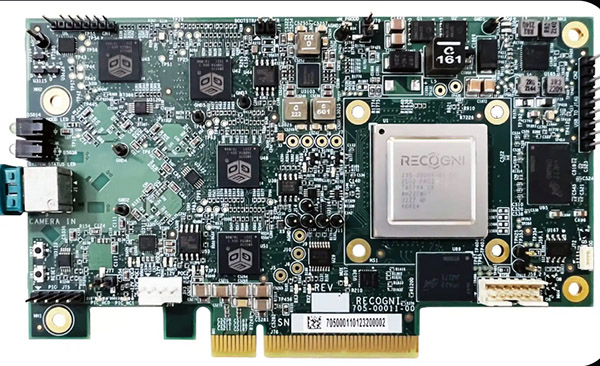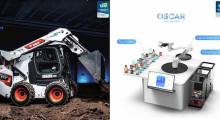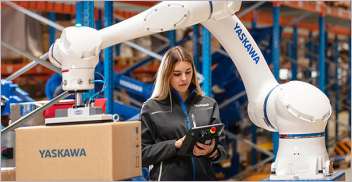Recogni Inc. this week announced the availability of Pegasus, a PCIe card that allows its Scorpio inference system to be configured for any autonomous mobility application. Customers using Pegasus with the Recogni software development kit, or SDK, can benefit from Scorpio's high compute capabilities, low power consumption, low latency, and low system cost, said the company.
“The need for autonomous capability is growing rapidly across all forms of transportation, and Recogni is committed to providing the most powerful, purpose-built solutions for autonomous mobility, regardless of use case,” said Marc Bolitho, CEO of Recogni, in a release.
“Being able to easily integrate Scorpio into any autonomous mobility application with our new Pegasus PCIe card and Recogni's SDK showcases the multiplatform flexibility, as well as the robustness and readiness of our solutions,” he added. “We're pleased to empower our customers with system architectural flexibility and fast deployment in autonomous mobility applications.”
Scorpio and Pegasus offer flexibility
“Unlike traditional solutions that are based on legacy technology and repurposed for the monumental task of AI perception processing for autonomous mobility, Recogni's system is purpose-built to overcome compute and power-efficiency barriers,” said the company.
Scorpio is the world's first 1,000 TOPS (thousand trillion operations per second or Peta-Op) inference system for autonomous vehicles, claimed Recogni. It is scalable from 500 and 1,000 TOPS to 2,000 TOPS at the highest capacity per Watt in the market, with the lowest latency and zero jitter, it claimed.
The Pegasus PCIe (Peripheral Component Interconnect Express) card can process up to four 8-megapixel cameras to provide front and surround views, according to Recogni. Pegasus uses its SDK to convert, compile, profile and deploy models.
Recogni boasted thjat Scorpio can replace long-range 3D object detection. Perception output includes detection of 3D objects, vulnerable road users, lanes, free space, and traffic lights and signs at ranges of more than 300 m (984.2 ft.), said the company.
In addition, a time of less than 10 milliseconds “from last pixel out to perception results” provides time for cars to navigate safely, it said.
The system's low power consumption—10 to 20 times that of competing systems—eliminates the need for liquid cooling and lowers its overall cost, noted Recogni. It asserted that it can extend an electric vehicle's driving range by more than 90 km (55.9 mi.) per charge at a 48.2 kph (30 mph) average speed.
The combination of the Pegasus PCIe card with the Scorpio accelerator is suitable for a variety of autonomous mobility applications, including robotaxis, self-driving trucks, drones, robotic delivery vehicles, and autonomous aviation, said Recogni.
In addition, Pegasus' development and deployment flexibility allows for faster time to market for any of these applications, it asserted.
Recogni gets support from VCs, Tier 1 suppliers
Founded in 2017, Recogni said it provides vision-based perception processing for autonomous driving platforms. The company has offices in San Jose, Calif., and Munich, Germany.
Lead investors in Recogni include GreatPoint Ventures, Celesta Capital, Mayfield, and DNS Capital. Other investors include automotive OEMs and Tier 1 suppliers such as BMW iVentures, Toyota Ventures, Bosch, Continental, Forvia, and FluxUnit-OSRAM Ventures.
“Having been in the automotive and autonomous driving industry for decades, it became clear that autonomous capabilities would only be able to go so far when using existing technology,” said Dr. Yvonne Lutsch, investment principal at Bosch Ventures.
Recogni has proven that to move the industry forward, it requires purpose-built technology that is powerful, flexible, and easy to integrate,” she said. “And Recogni continues to demonstrate their credibility as an autonomous technology provider.”
Article topics
Email Sign Up
















